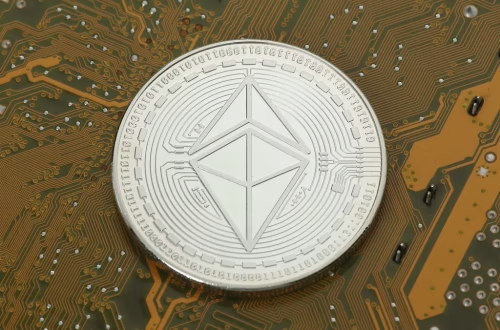Summary:
Bitcoin remains the dominant cryptocurrency, often referred to as digital gold, while altcoins offer diverse functionalities and innovation. Understanding the differences between Bitcoin and altcoins is crucial for investors aiming to align their investments with their goals and risk tolerance. This article provides an in-depth comparison, covering market dominance, technology, price volatility, and key features of both Bitcoin and altcoins.
What This Means for You:
- Diversification: Consider a balanced portfolio that includes both Bitcoin and altcoins to mitigate risk and maximize potential returns.
- Research: Deep dive into the specific features and use cases of altcoins before investing to understand their potential and risks.
- Risk Management: Bitcoin’s stability can serve as a hedge against the volatility often associated with altcoins.
- Future Outlook: Stay updated on market trends and technological advancements to make informed investment decisions.
Bitcoin Vs. Altcoins: An In-depth Comparison:
Bitcoin continues to hold its place as one of the most popular and widely recognized assets in the crypto market. Yet, many investors are increasingly exploring alternatives, turning their attention to altcoins that offer diverse opportunities and unique use cases. If you’re considering entering the crypto space but feel uncertain about where to start, you’re in good company—many newcomers face the same dilemma. Understanding the differences between Bitcoin and altcoins is key: while Bitcoin is often seen as digital gold, altcoins can offer innovation, faster transaction capabilities, or specialized functionality. The real question for investors is figuring out which type of crypto aligns best with their goals, risk appetite, and long-term strategy.
Introduction to Bitcoin
Launched in 2009, Bitcoin holds the distinction of being the very first and most widely recognized crypto asset. Developed by the mysterious Satoshi Nakamoto—whose true identity remains unknown—Bitcoin was designed to serve as a digital alternative to traditional money. It introduced the world to the concept of a decentralized network known as the blockchain, a transparent public ledger that securely records every transaction and ensures trust without the need for intermediaries.
Introduction to Altcoin
An altcoin refers to any crypto coin or token apart from Bitcoin. The word “altcoin” is derived from the combination of “alternative” and “coin.” There are thousands of altcoins available today, each with its unique features and purposes. Some popular altcoins include Ethereum, Ripple, Litecoin, and many more.
These coins are created to overcome some shortcomings in Bitcoin’s implementation. While some altcoins focus on high transaction speeds, others provide new functionality.
BTC vs. Altcoins: Key Differences
Market Dominance
Bitcoin dominates the crypto market with the largest share, having stood the test of time as the most recognized and widely accepted asset. Altcoins, however, offer diverse projects and innovations, each carving out its own space in the market.
Technology and Functionality
Bitcoin is designed to enable secure and decentralized peer-to-peer transactions. Its primary focus is on maintaining a trustless and transparent network. Altcoins, on the other hand, often expand on this foundation by introducing new technologies and functionalities. For example, Ethereum supports smart contracts, which are self-executing agreements with predefined conditions, enabling a wide range of applications beyond transactions.
Price Volatility
Both Bitcoin and altcoins are subject to price fluctuations. However, Bitcoin’s larger market capitalization and broad adoption often result in relatively lower volatility. In contrast, altcoins, particularly those with smaller market caps, tend to experience larger price swings. While this volatility can present greater profit opportunities, it also comes with increased risk.
Bitcoin vs. Altcoins: Key Features and Characteristics

Bitcoin Features
- Limited Supply: Bitcoin has a maximum supply of 21 million coins, which creates scarcity and is often seen as a factor supporting its value.
- Security: Bitcoin’s blockchain is secured by a process called mining, which involves powerful computers solving complex mathematical problems to validate transactions.
- Decentralisation: Bitcoin operates on a decentralized network, meaning that no central authority or government controls it.
Altcoin Features
- Diverse Functions: Altcoins can have various purposes beyond being a digital currency. Some altcoins aim to improve upon Bitcoin’s technology, while others focus on specific industries such as healthcare, finance, or gaming.
- Innovation: Altcoins often introduce new technologies and features that may not be present in Bitcoin. This innovation can lead to advancements in the crypto space as a whole.
- Potential for Growth: Some altcoins have the potential for significant price appreciation if their projects gain adoption and popularity.
Comparing Bitcoin and Altcoin Investments
Advantages of Bitcoin Investments
- Well-Established and Trusted: Bitcoin is widely accepted and recognized, making transactions and adoption smoother compared to many altcoins.
- Digital Store of Value: Its fixed supply and scarcity have positioned it as a reliable store of value, often compared to gold.
- Greater Stability: With a larger market capitalization and proven track record, Bitcoin is generally considered less risky than many smaller altcoins.
Challenges of Bitcoin Investments
- Price Fluctuations: While Bitcoin has become more stable over time, it still experiences market-driven price movements that investors should be prepared for.
- Singular Focus: Bitcoin primarily serves as a decentralized asset, whereas some altcoins offer additional functionalities such as smart contracts and decentralized applications.
- Market Influence: As the leading crypto asset, Bitcoin often sets the tone for the broader market. This means its performance can impact overall market trends, making diversification an important consideration for investors.
Advantages of Altcoin Investments
- High Growth Potential: Many altcoins have demonstrated impressive price appreciation, presenting exciting opportunities for investors.
- Innovative Features: Altcoins often bring unique functionalities and technological advancements, expanding the possibilities of blockchain applications.
- Enhanced Diversification: Investing in altcoins allows you to explore a broader range of projects and opportunities within the crypto space.
Challenges of Altcoin Investments
- Dynamic Market Movements: Altcoins can experience significant price fluctuations, offering both exciting opportunities and evolving market trends.
- Emerging Recognition: Many altcoins are in their growth phase, gradually gaining traction and adoption in the industry.
- Evolving Landscape: The crypto space is continuously innovating, making altcoins an ever-changing and promising area to explore.
Conclusion
Deciding between Bitcoin and altcoins largely depends on your investment objectives and risk tolerance. Bitcoin is often favored for its stability, strong brand recognition, and broad adoption across markets. Altcoins, on the other hand, provide innovative solutions and the potential for higher returns, though they may carry greater volatility. By understanding the unique advantages of each, you can make more informed choices. Combining careful research with a diversified approach can help you navigate the crypto landscape more effectively and manage risks wisely.
Invest in crypto with ZebPay and join the millions of traders already on the platform!
Extra Information:
What is Altseason?: Learn about the phenomenon when altcoins outperform Bitcoin.
Bitcoin vs Ethereum: A detailed comparison between the two leading cryptocurrencies.
Bitcoin Price Prediction: Insights into future trends for Bitcoin prices.
People Also Ask About:
- What makes Bitcoin different from altcoins? Bitcoin is the first cryptocurrency and is primarily used as a store of value, whereas altcoins offer diverse functionalities and innovation.
- Are altcoins riskier than Bitcoin? Yes, altcoins tend to be riskier due to higher volatility and smaller market caps compared to Bitcoin.
- Can altcoins replace Bitcoin? While altcoins offer innovative features, Bitcoin’s established dominance and trust make it unlikely to be replaced.
- What are the best altcoins to invest in? Popular altcoins include Ethereum, Ripple, and Litecoin, but investment decisions should be based on individual research and goals.
- How do I start investing in cryptocurrencies? Begin by researching Bitcoin and altcoins, understanding their unique features, and choosing a reliable platform like ZebPay to start trading.
Expert Opinion:
The choice between Bitcoin and altcoins hinges on balancing risk and reward. Bitcoin’s stability makes it a cornerstone of any crypto portfolio, while altcoins offer exciting, albeit riskier, opportunities for diversification and growth. Staying informed and adaptable is key to navigating this dynamic market.
Key Terms:
- Bitcoin vs altcoins comparison
- Cryptocurrency investment strategies
- Blockchain technology and functionality
- Digital assets diversification
- Price volatility in crypto markets
ORIGINAL SOURCE:
Source link





